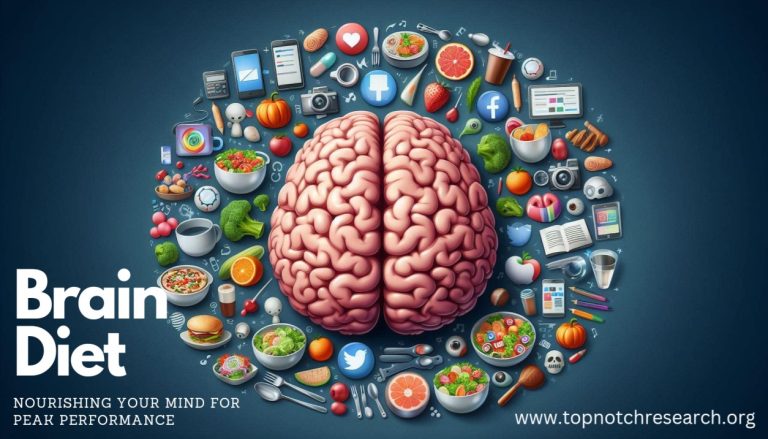
In a world where physical health often takes center stage, the concept of a “Brain Diet” emerges as a pivotal strategy for mental well-being. Just as our bodies require a balanced diet to function optimally, our minds too thrive on a regimen that fosters focus, memory, and emotional stability.
Table of Contents
ToggleWhy a Brain Diet?
The brain, like any other organ, is susceptible to the effects of our lifestyle choices. The modern environment, saturated with digital stimuli, has created an unprecedented demand on our cognitive resources. The constant barrage of information and the blue light from screens can lead to an overproduction of neurotransmitters such as cortisol, dopamine, and adrenaline. This hormonal imbalance can manifest as mental fog, anxiety, and an inability to concentrate—symptoms of what could be termed a “mental obesity.”
The Neurotransmitter Balance
Cortisol, the “stress hormone,” is naturally produced in response to daylight, activating the brain and body for the day’s tasks. However, excessive exposure to artificial light from screens can lead to an overproduction of cortisol, leaving us feeling restless and anxious.
Dopamine, the “reward hormone,” is released during pleasurable activities, including social interactions and achievements. Yet, the instant gratification provided by social media likes and notifications can lead to a dopamine overload, diminishing our capacity for sustained attention and increasing the craving for more stimuli.
Adrenaline, associated with the “fight or flight” response, can be triggered by exciting or stressful events. Overconsumption of sensational news and content can lead to an adrenaline rush, followed by a crash, contributing to a cycle of stress and anxiety.
Implementing the Brain Diet
The solution lies in a balanced “Brain Diet,” which involves regulating the intake of these neurotransmitters, much like we would with sugar or unhealthy fats. Here are some strategies to nourish your mind:
Digital Fasting: Allocate 12-14 hours a day away from digital devices. This “fasting” period allows your brain to reset and reduces the overstimulation of neurotransmitters.
Mindful Media Consumption: Be selective about your digital consumption. Choose quality content over quantity, and avoid the temptation to multitask with multiple devices.
Blue Light Management: Limit exposure to screens, especially before bedtime, to maintain your natural sleep-wake cycle and reduce cortisol production.
Social Interaction: Engage in face-to-face conversations and activities that promote genuine social connections, fostering a healthy release of dopamine.
Physical Exercise: Regular physical activity can help regulate neurotransmitter levels, improve mood, and enhance cognitive function.
Mental Stimulation: Challenge your brain with puzzles, reading, and learning new skills to keep it active and prevent mental stagnation.
A “Brain Diet” is not about restriction but about balance and mindfulness. By managing our digital intake and fostering healthy habits, we can reclaim our mental clarity and focus. In doing so, we not only enhance our cognitive abilities but also improve our overall quality of life.
